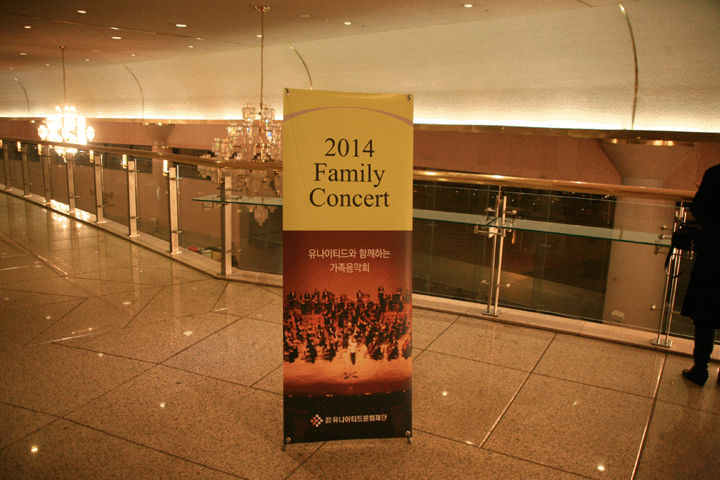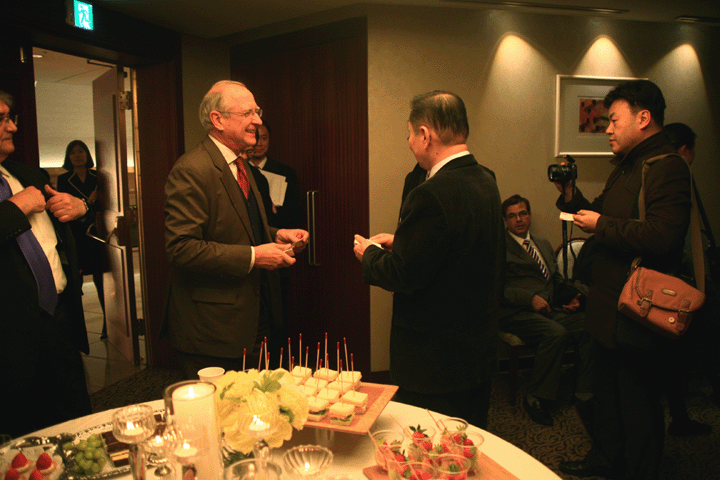Hosted by CEO Kang Duk-young of Korea United Pharma
Chairman and CEO Kang Duk-young of the Korea United Pharmaceutical Co., Ltd. hosts a Gala Summer Classic Concert at the Seoul Arts Center in Seocheo-dong, Seoul on July 7, 2014 for the society leaders of Korea and the ambassadors and their spouses.
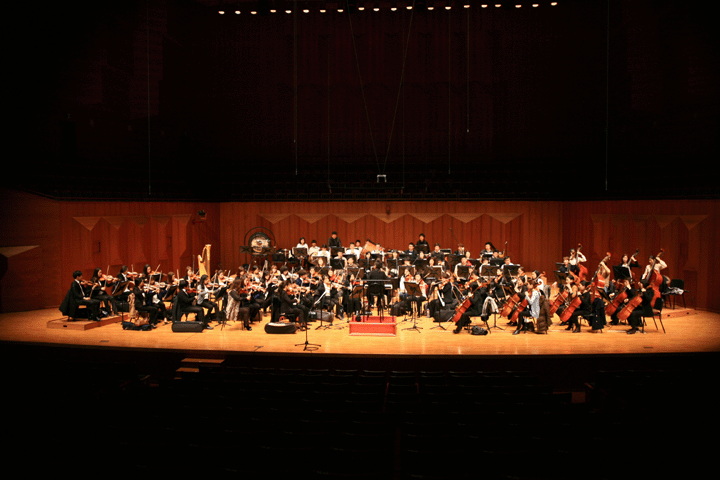
This year, Chairman Kang substantially increased the concert budget to further upgrade and enrich the event. The Concert, conducted by Ms. Kim Bong-Mi, features the United Philharmonic Orchestra and a number of noted lady and male vocalists, including Trumpeter Ahn Hee-Chan, Soprano Kim Soo-Hyun and Tenor Kim Dong-Yup.
The repertoire consists of the following:-
A. Dvorak: Carnival Overture op. 92 (by the Orchestra)
G. Gershwin: Rhapsody in Blue (with Choi Hun-rak at the piano)
Intermission
E. Morricone: Bagriel's oboe by Trumpet Ahn Hee-Chan
G. Puccini: Opera Laboheme (Quando me'n vo [When I walk alone to the Street]) by Trumpet Ahn Hee-Chan)
W.A. Mozart: Der hoelle rache kocht meinem Herze (My heart burns with a hellish demand for revenge) by Soprano Kim Soo-yeon
G. Verdi: La donna e mobile (Woman's mind) by Tenor Kim Dong-Yup
J. Offenbach: From Opera "Story of Hoffmann" (Les oiseau dans la charmille [Small birds sit under the shade of the tree]) by Soprano Kim Soo-yeon
G. Puccini: From Opera Turandot, Nessun Dorma (Nobody will sleep) by Tenor Kim Dong-Yup
P.I. Tschaikovsky, Capriccio Italien Op. 45 by Orchestra
Conductor Kim Bong-mi is a lady, and a lady conductor is not very common in Korea. On the stage, however, Conductor Kim is not only a beautiful lady in appearance but also a thorough conductor who tries to be second to none in the area of conducting. There is something more to Conductor Kim, however. It is the unmistakable presence of feminity and subtle sensitivity that is unique to women.
She is the full-time conductor of the Seoul Philharmonic Orchestra and the Siheung Symphony Orchestra.
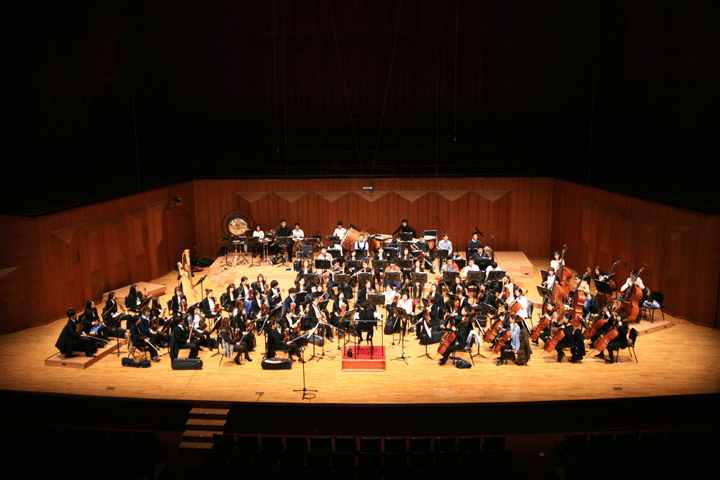
In 2012, Ms. Kim won the Conductor’s Award at the 5th Grand Opera Award of the Republic of Korea.
Trumpet Ahn Hee-chan is the representative trumpet player in the Republic of Korea. He has worked as a senior member of the KBS Symphony Orchestra, the Korean Symphony, the Asia Philharmonie and various other noted philharmonic orchestras. Presently, Ahn is a professor at Chugye University for the Arts.
Soprano Kim Su-yeon is noted for her outstanding vocal charm and expression of delicate emotions. She also has a wide range of excellent techniques and continues to attract attention as a noted coloratura soprano.
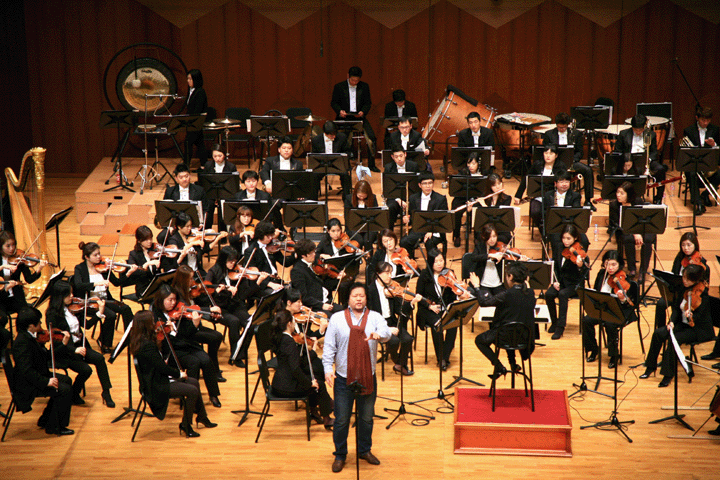
She has been performing with the Seoul Philharmonic Orchestra, the Bucheon City Philharmonic Orchestra and various other well-established and philharmonic orchestras, including the KBS.
Tenor Kim Dong-yup graduated from the Seoul Art High School and the Seoul National University College of Music summa cum laude and then from the Indiana University College of Music and the University of San Francisco College of Music where he earned his Master of Art degree?all as a scholarship student. This year, he has performed at the Davis Hall in San Francisco and took part in the 2014 International Vocal Competition audition.
Pianist Choi Hun-rak graduated from Keimyung University with a major in piano, went over to Germany and graduated from Stuttgart National University for Music where he completed the Kuenstlerische Ausbilug Course and the Trossingen National University for Music xxx completing the Solstiche Ausbildung. Choi started playing piano at the age of six and won Genius Award at the age of 13 from the Daegu City Education Office’s music concours (competition). Kim has lectured at the Daegu Keimyung University and the Andong University and is now a professor at Daegu Arts University.
Antonin Dvorak (1841-1904), Carnival Overture Op.92:
Presented at the current concert is the second one of the three overtures for performance and it features the Bohemian people enjoying themselves at a carnival with the folk music melodies and indigenous rhythms. They are presented mixed with the slow and fast movements of the Slovonic dances. It reminds the audience of a carnival procession of excited people.
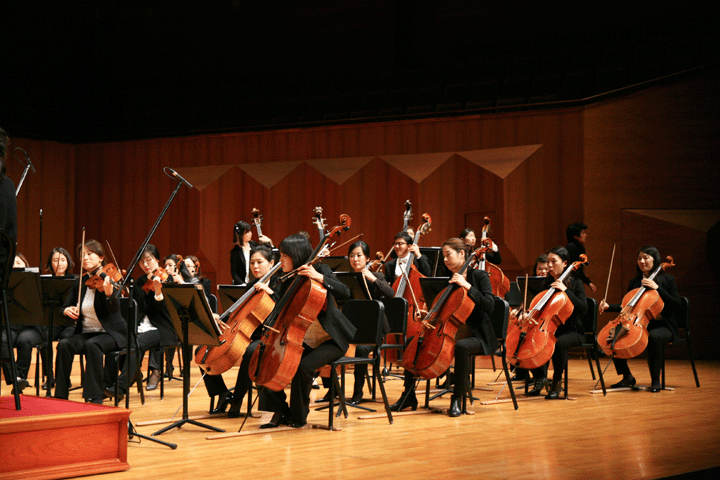
George Gershwin (1898-1937), Rhapsody in Blue:
George Gershwin is an American composer who wrote Rhapsody in Blue in 1924. It is one of the representative works of Gershwin together with “An American in Paris” and “Porgy and Bess.” It is based on classic music but it also has elements of Jazz. It is one of the representative Symphonic Jazz which is for Jazz-Piano Concerto for the piano and orchestra.
Ennio Morricone (Gabriel’s oboe):
Ennio Morricone started getting the attention of the public is through the medium of Director Roland Jofee’s film, “The Mission,” which is a real-story movie featuring a Christian missionary who went to South America in 1750.
Giacomo Puccini (1858-1924), Quando me’n vo (When I Go Out to the Street Alone):
La Boheme is the fourth opera work created by Puccini, and is rated to be the most successful one of all his works for the rich melodies and pathetic details. This piece, which is also called “Musetta’s Waltz,” is a waltz-like aria where Musetta is encountered at Caf? Momus with her old boyfriend, Marcello, and makes all kinds of seductive gestures to attract the attention of Marcello who feigns ignorance of her to show his absence of interest in her.
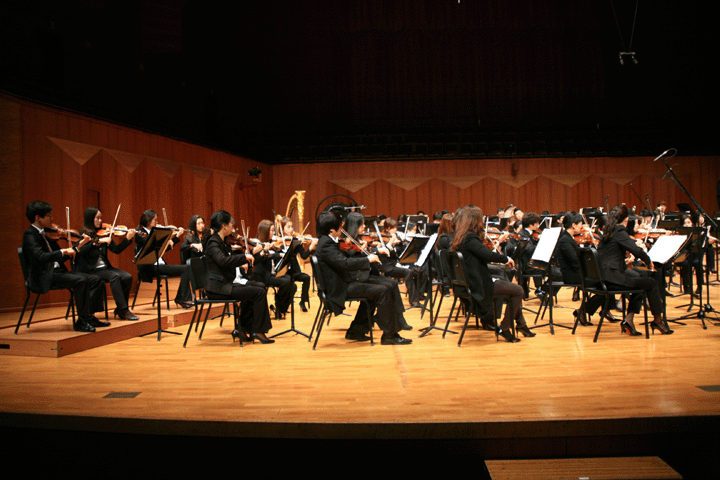
Wolfgang Amadeus Mozart (1756-1791):
Presented here is Der hoelle rache kocht meinem Herze (Sensation of a hellish revenge flares up in my mind) from the “Opera Magic Flute” which is considered to be all the more famous because it is the last opera work of Mozart. This is work was composed in such a way as to provide space in the middle for the dialogs of the common people of the time, which made it all the more popular among the common people. This work is the only one opera done in the German language.
In the aria, the Queen of the Night tells her own daughter to kill Sarastro. It requires the use of the highest techniques that can be shown by a Coloratua Soprano.
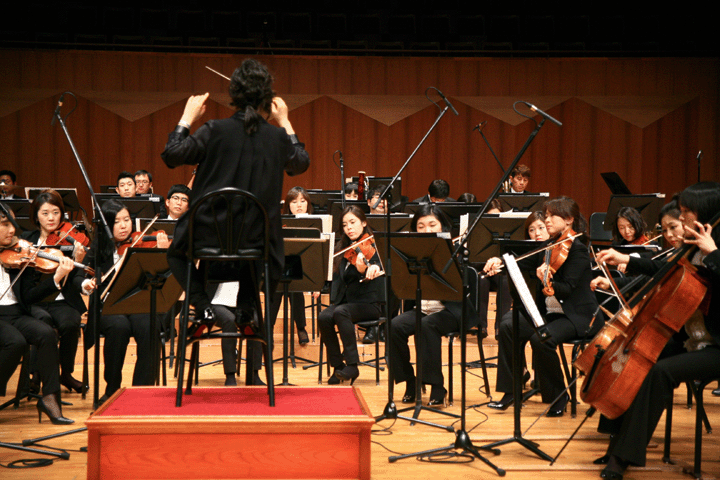
Giusepee Verdi (1813-1901), La donna e mobile (A Woman’s Heart) from Opera Rigoletto:
Italian Composer Verdi completed Opera Rigoletto in 1851 based on the Le Roi S’amuse (“Dissipated King”) written by Victor-Marie Hugo. In Act 3, lustful Duke Mantova appears clad in military uniform at the Tavern of Assassin Sparafucile and sings the song, “Woman is Fickle.” It is the most famous aria in the opera.
Jaques Offenbach (1819-1830), Les oiseaux dans la charmille (Little Birds Sit under the Shade of Tree) from the Opera, Les Contes d Hoffmann (“The Tales of Hoffmann):
“The Tales of Hoffmann” composed by the great opera maestro, Offenbach, is the only one opera of his. It is an omnibus opera composed of 3 Acts, a prolog and an epilog. Each Act shows the different story of love experienced by Hoffmann. It is a Coloratura Aria where the song is sung by a doll named Olympia made by Spalan Zari in Act 1.
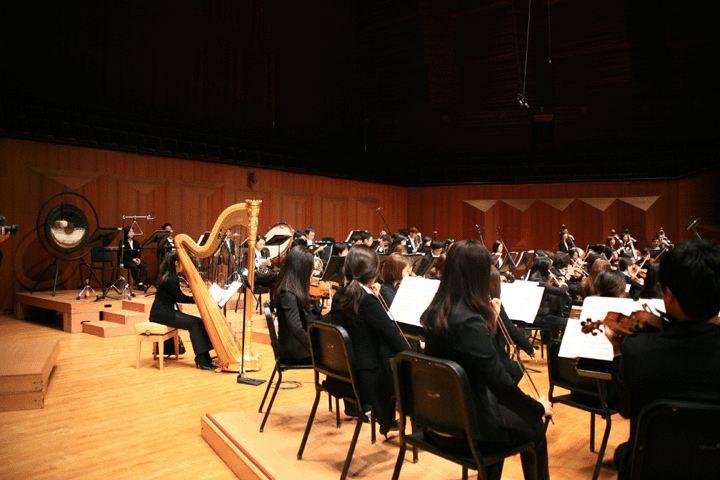
Giacomo Puccini (1858-1924), Messun Dorma, Tenor Kim Dong-Yup:
Nessun Dorma here means that no one is going to sleep. Princess Turandot sets three puzzles. Notices are pasted on the walls saying, “Whoever solves all three puzzles will marry with me. However, he who fails to do so will get a death penalty.” Wise Prince Khalaf bravely challenges the puzzles and solves all of them. However, Princess Turandot refuses to marry him. Prince Khalaf counterproposes to Princess Turandot, “Princess, please find my correct name before tomorrow. If you find name, I will gladly die for you. However, if you do not find my name, you have to marry me.
The princess sends out people to all places to find out his name.
The day dawns and the princess cries out to her people “Nessun Dorma” (never go to sleep) before you find out his name.
However, on the other side Prince Khalaf wears a triumphal smile and says, “You will never find out my name.” Then he sings Vincero, the song of victory.
Peter Ilyich Tschaikovsky (1840-1893), Capriccio Italien Op. 45 (Italian capriccio):
Of the many orchestral works of Tschaikovsky, Capriccio Italien Op. 45 is known to be the best organized work and is noted for its brightness in contrast with most of the Italian works that are pathetic and melancholic.
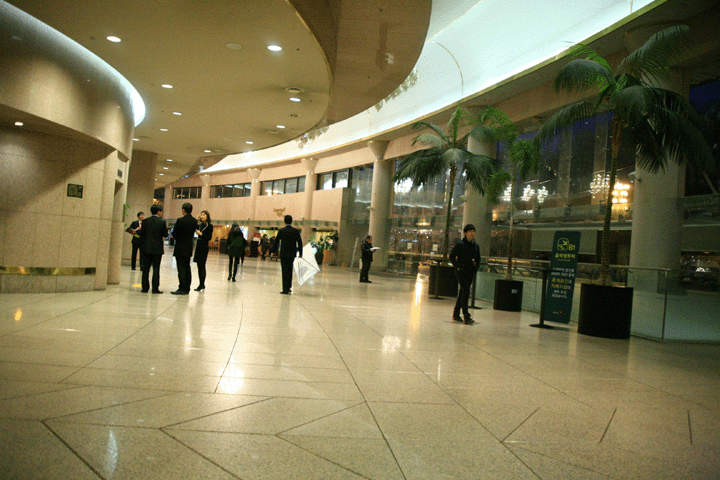
In 1877, Tschaikovsky went to Clarans Lakeside for convalescence and after recovery of his health, he went to Italy where he composed the work.
The United Pharma, according to Chairman and CEO Kang, aspires to grow into a Giant Tree-like Corporate Social Responsibility, which provides a wide umbrella of protection and shares its fruits with all the peoples of the world.
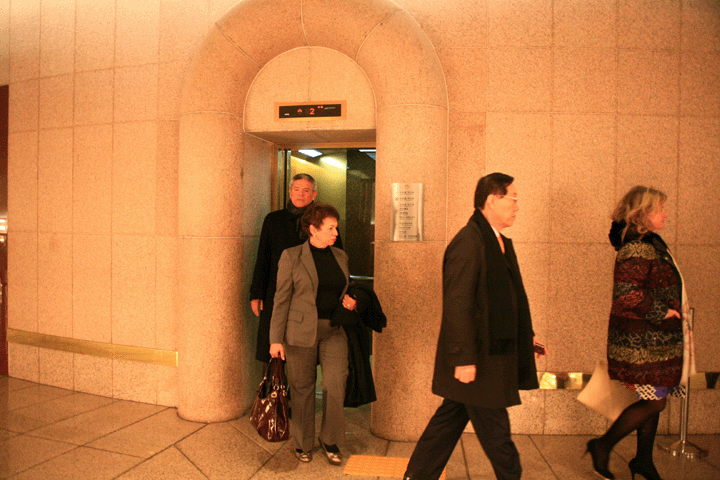
The United Pharma has been chosen by Forbes Magazine as an “Asia’s 200 Best Under a Brillion for two consecutive years.
The company has local production facilities in the United States, Vietnam and Egypt and supplies pharmaceutical products not only to the Korean market but also to a total of over 30 different countries of the world.
